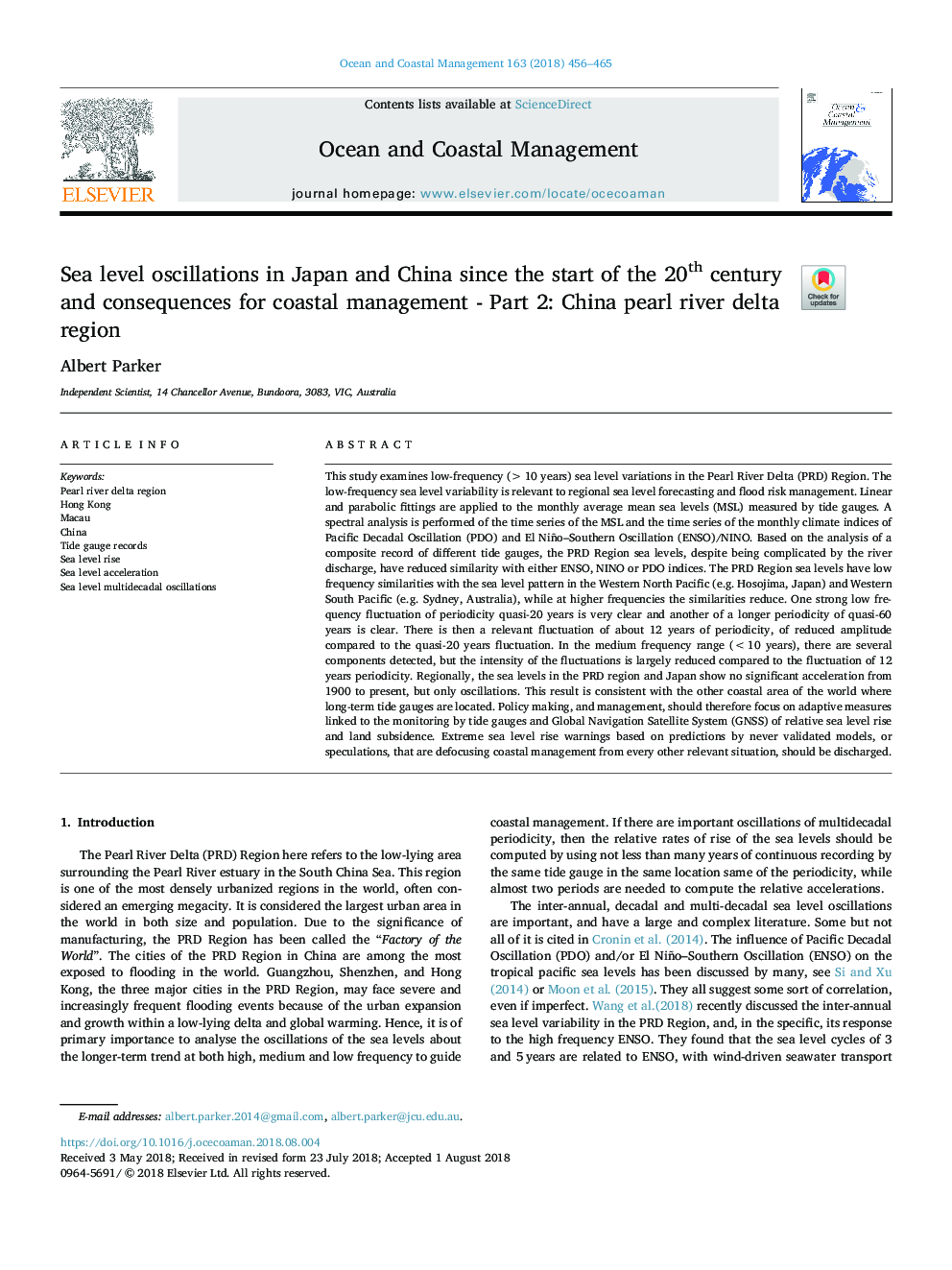| Article ID | Journal | Published Year | Pages | File Type |
|---|---|---|---|---|
| 8060569 | Ocean & Coastal Management | 2018 | 10 Pages |
Abstract
This study examines low-frequency (>10 years) sea level variations in the Pearl River Delta (PRD) Region. The low-frequency sea level variability is relevant to regional sea level forecasting and flood risk management. Linear and parabolic fittings are applied to the monthly average mean sea levels (MSL) measured by tide gauges. A spectral analysis is performed of the time series of the MSL and the time series of the monthly climate indices of Pacific Decadal Oscillation (PDO) and El Niño-Southern Oscillation (ENSO)/NINO. Based on the analysis of a composite record of different tide gauges, the PRD Region sea levels, despite being complicated by the river discharge, have reduced similarity with either ENSO, NINO or PDO indices. The PRD Region sea levels have low frequency similarities with the sea level pattern in the Western North Pacific (e.g. Hosojima, Japan) and Western South Pacific (e.g. Sydney, Australia), while at higher frequencies the similarities reduce. One strong low frequency fluctuation of periodicity quasi-20 years is very clear and another of a longer periodicity of quasi-60 years is clear. There is then a relevant fluctuation of about 12 years of periodicity, of reduced amplitude compared to the quasi-20 years fluctuation. In the medium frequency range (<10 years), there are several components detected, but the intensity of the fluctuations is largely reduced compared to the fluctuation of 12 years periodicity. Regionally, the sea levels in the PRD region and Japan show no significant acceleration from 1900 to present, but only oscillations. This result is consistent with the other coastal area of the world where long-term tide gauges are located. Policy making, and management, should therefore focus on adaptive measures linked to the monitoring by tide gauges and Global Navigation Satellite System (GNSS) of relative sea level rise and land subsidence. Extreme sea level rise warnings based on predictions by never validated models, or speculations, that are defocusing coastal management from every other relevant situation, should be discharged.
Keywords
Related Topics
Physical Sciences and Engineering
Earth and Planetary Sciences
Oceanography
Authors
Albert Parker,
